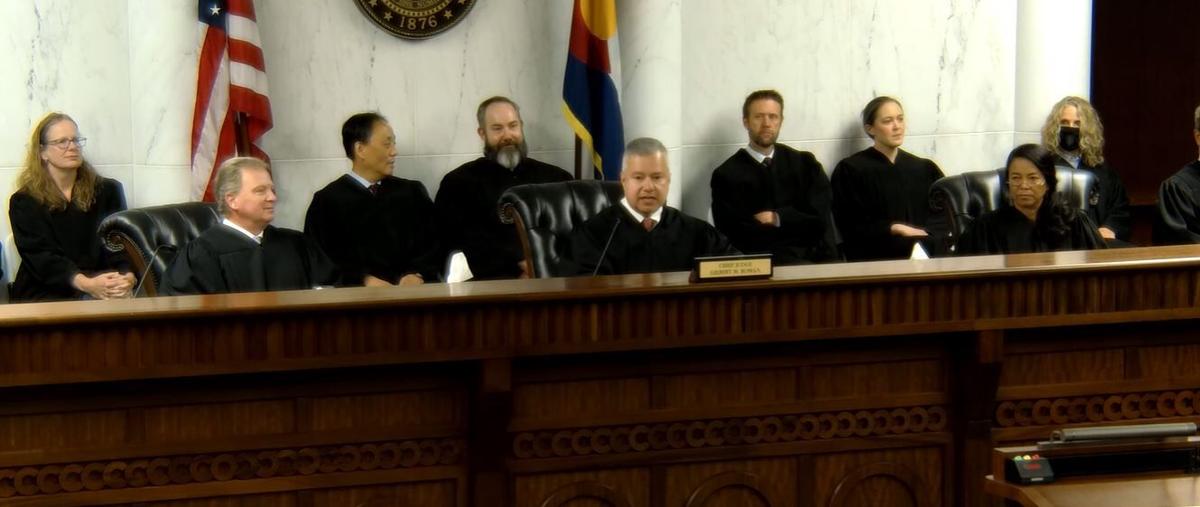Late-filed appeal submitted to wrong court due to lawyers’ carelessness not OK, appeals court rules
If an attorney files an appeal in the wrong court and does not notice until after the deadline, that is too bad, Colorado’s second-highest court ruled last month.
In a precedent-setting decision, a three-judge panel of the Court of Appeals concluded its ability to hear a late-filed appeal due to “excusable neglect” does not extend to when law firms accidentally submit their appeal to the wrong place.
Judge Lino S. Lipinsky de Orlov, in the May 23 opinion, clarified it did not matter that a non-lawyer assistant was the one who inadvertently submitted the appeal to the trial court, rather than the appellate court.
“While this may be true, the late filing resulted from counsel’s failure to supervise his non-lawyer assistant and, even more seriously, his failure to read the submission receipt he received from the district court one minute after his assistant filed the notice of appeal in the wrong court,” Lipinsky wrote. “Had counsel read the submission receipt, he would have immediately discovered his assistant’s mistake.”
In a multimillion-dollar dispute over oil and gas extraction in Wyoming, Jonah Energy LLC moved to appeal a Denver trial judge’s order. The deadline to submit the notice of appeal was March 13, 2023. Attorney Stephen D. Rynerson asked his assistant to file “after 4 PM with the Colorado Court of Appeals.” At 4:37, she announced she had submitted the appeal.
However, the emailed receipt indicated she filed with the Denver District Court, not the Court of Appeals. The next day, Rynerson asked the Court of Appeals to accept his late-filed notice due to excusable neglect — specifically, his law offices were being remodeled and he was unable to remotely supervise his assistant.
“Undersigned counsel’s assistant, however, inadvertently (and unbeknownst to undersigned counsel at the time due to the aforementioned remote work situation) selected an option in the electronic filing system to commence a new case filing in the Denver District Court rather than this Court,” he wrote. “Undersigned counsel did not detect at the time of filing that the Notice of Appeal had been filed in the incorrect court.”
Rynerson’s opposing counsel urged the Court of Appeals to reject the filing, noting it was submitted on the very last day, the emailed receipt clearly referenced Denver District Court and remote work was not an excuse.
A three-judge motions panel agreed to accept the appeal late. Lipinsky, who sat on both the motions panel and the panel that ultimately heard the case, voted to reject the appeal.

Members of Colorado's Court of Appeals gather at the ceremonial swearing-in of Judge Grant T. Sullivan on June 7, 2024.

Members of Colorado’s Court of Appeals gather at the ceremonial swearing-in of Judge Grant T. Sullivan on June 7, 2024.
Before oral arguments, the Court of Appeals asked the parties to elaborate on what excusable neglect means and whether the late-filed appeal met that threshold. Jonah Energy responded that it could find no instance of a court rejecting an appeal under similar circumstances, while opposing counsel maintained there was plenty of time left in the day to properly submit the appeal if Jonah Energy’s lawyers had been paying attention.
In a lengthy opinion solely about the concept of excusable neglect, Lipinsky cited personal tragedy, illness, family death and destruction of files as examples of unavoidable occurrences that amount to excusable neglect. He rejected the idea that courts must start by evaluating the harm of accepting a late-filed appeal. Instead, he wrote, they should look solely at the reason for the lateness.
The panel concluded “common carelessness and negligence,” not excusable neglect, were to blame in the case at hand.
“Rather than take responsibility for his failure to check the submission receipt, counsel blames his assistant for her deviation from his instructions,” Lipinsky wrote. “Accordingly, we hold that counsel’s failure to timely read the district court’s submission receipt showing that his assistant filed the notice of appeal in the wrong court does not constitute excusable neglect.”
Rynerson did not immediately respond to a request for comment.
The case is Riggs Oil & Gas Corp. et al. v. Los Feliz Oil Company, LLC et al.




